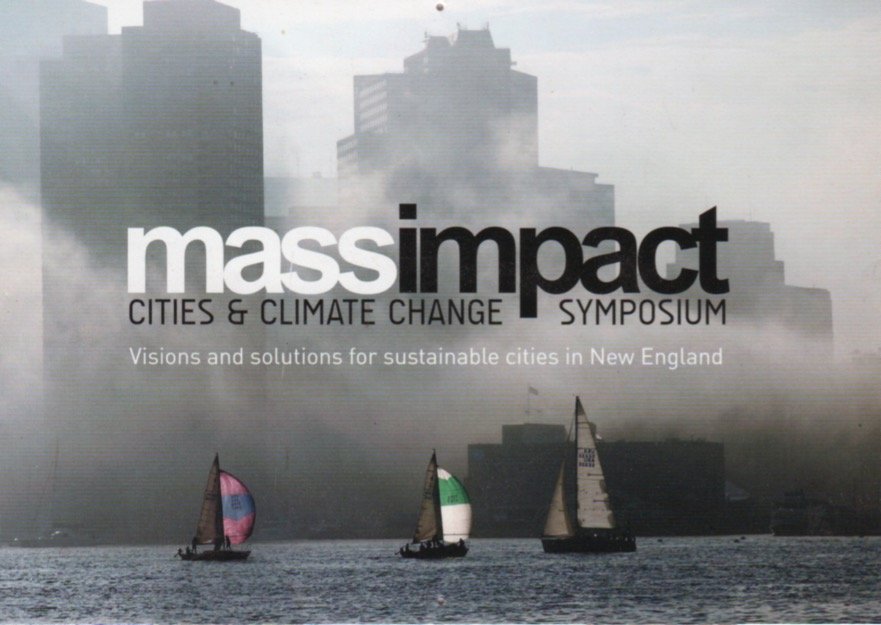Environmental conferences
MassImpact | Cities and Climate Change
In March and June 2008 the Boston Society of Architects and the Massachusetts Institute of Technology held two symposia with the title MassImpact | Cities and Climate Change. The aim of the conferences was to bring architects, planners, landscape architects and engineers together with elected representatives and policy makers to discuss critical issues and to learn from case studies. Speakers came from the United Kingdom, Germany Canada, Brazil and the United States to share their knowledge and experience.
From the introduction to the first symposium:
With vision and the right set of strategies, Boston has the material and intellectual resources to become an exemplary 21st century sustainable global city. The region’s universities, medical facilities and research and policy institutes, combined with leading practitioners in energy systems, transportation engineering, public health and policy-making, as well as leading architects and urban designers, are collectively capable of making a significant change in the way we use our natural resources.
The introductory position paper can be viewed here
The prospectus for the conference can be viewed here
The list of speakers and topics can be viewed here
Steering Committee: Hubert Murray and Andrew Scott (co-chairs), Mike Davis, Marcus Springer, Matthew Kiefer
MIT Climate Change Symposium on Sustaining Coastal Cities
This 2014 conference hosted by MIT Sea Grant was designed to focus specifically on coastal cities and the effects of climate change on the built environment and the economy, and the natural ecologies of coastal zones.
Elizabeth Padjen, Connecting the Doubts, Landscape Architecture Magazine, August 2014
Videos are available for viewing here.
Steering Committee: Dr. Judith Pederson, Joseph Savage, Hubert Murray
Resilience 2.0: Healthcare’s Role in Anchoring Community Health and Resilience
This 2017 conference hosted by Healthcare Without Harm and Partners HealthCare (now MassGeneral Brigham) was designed to focus on the public health effects of climate change and the necessary measures that need to be taken to ensure continuous reliable healthcare support as the crisis deepens. From the executive summary of the report:
Health care institutions and the communities they serve are intimately interconnected, especially during and following extreme weather events and human-made disasters. This Summit focused on leveraging community health and climate resilience as a key strategy in the strengthening the health care sector’s climate preparedness. Outputs address health care sector engagement in climate public policy; a business case for climate resilient health care; innovative solutions to backup and reliable power generation for health care facilities and community providers; and creating robust networks of partnerships.
Steering Committee: Paul Lipke, Bill Ravanesi, Jessica Wolff, Robin Guenther, Hubert Murray




